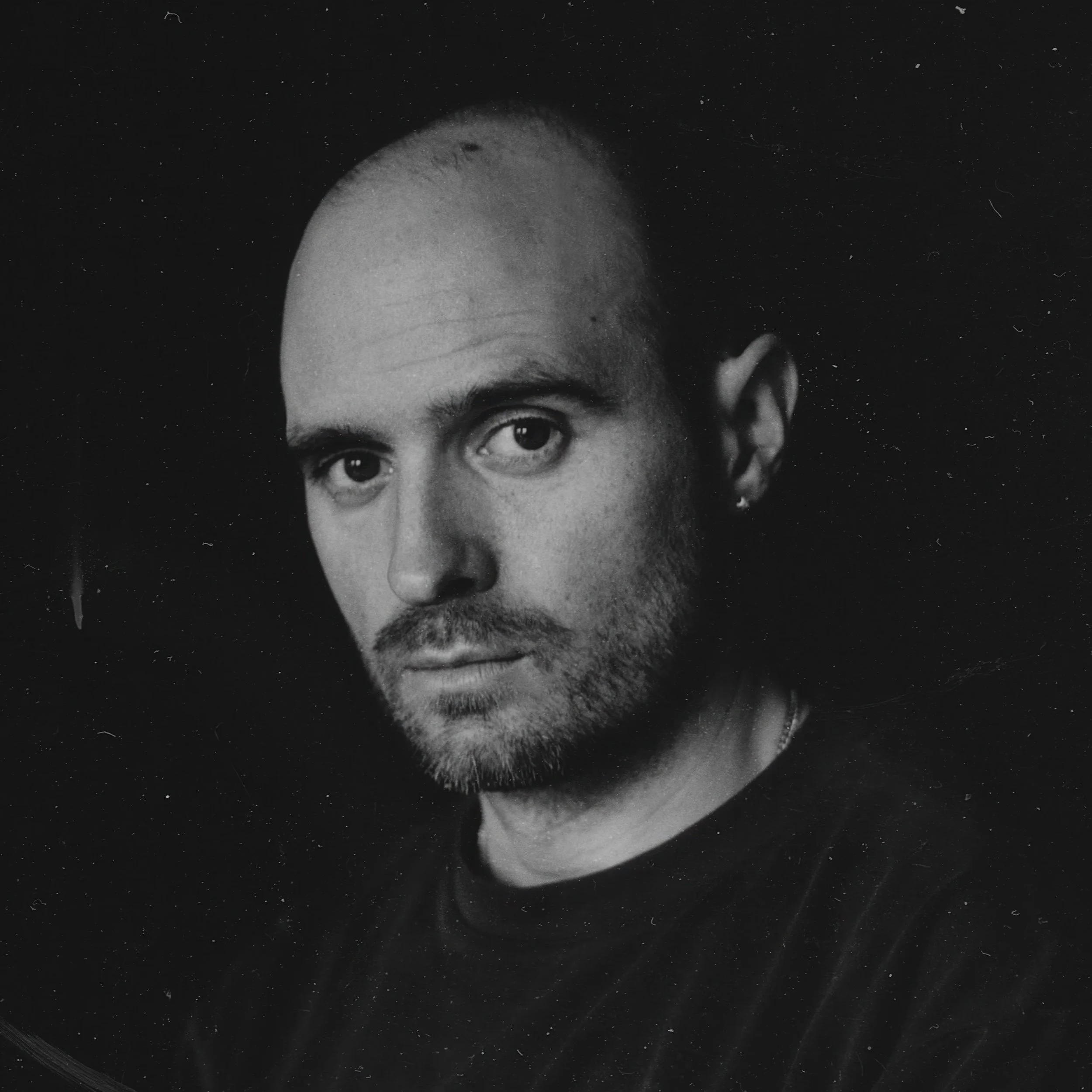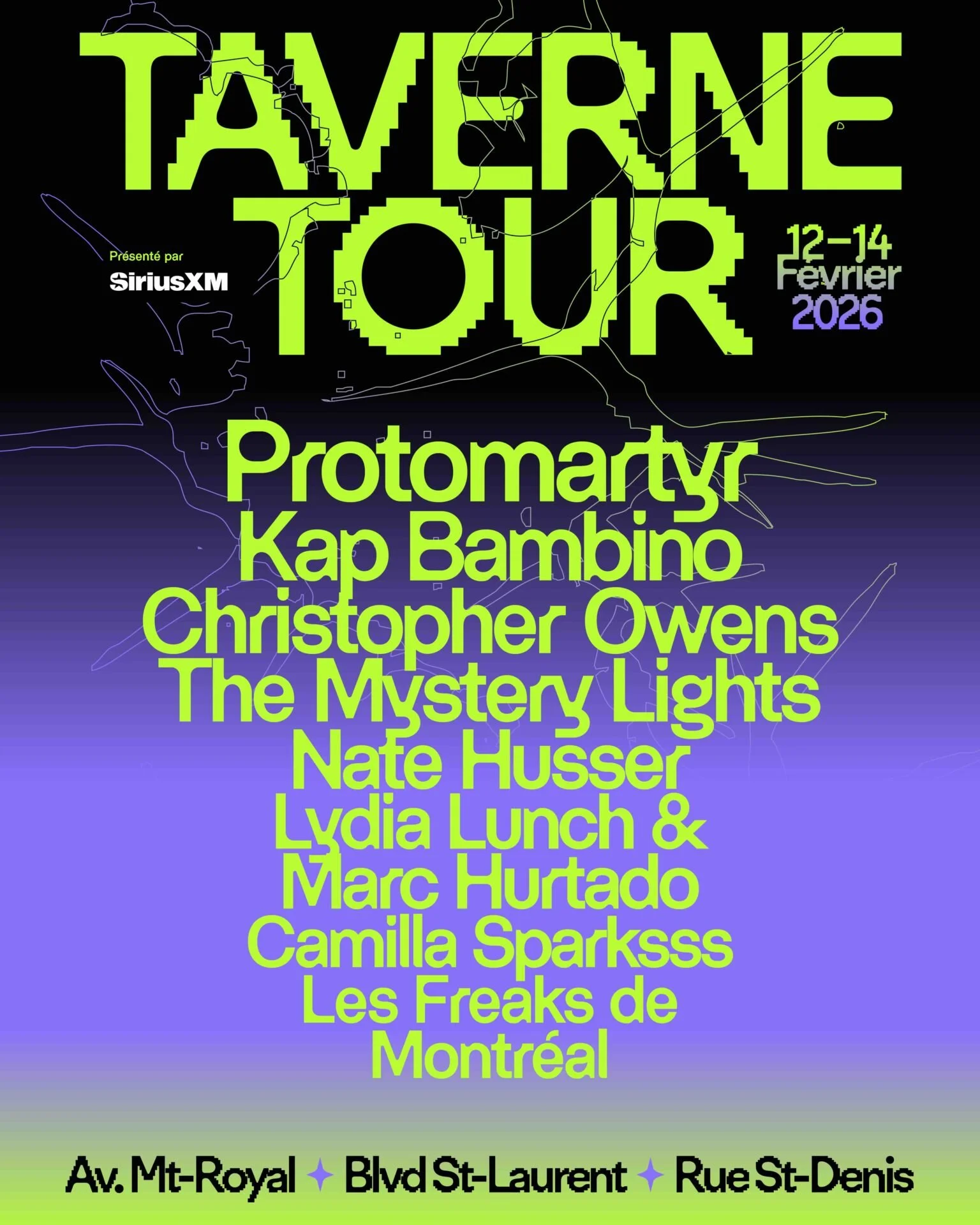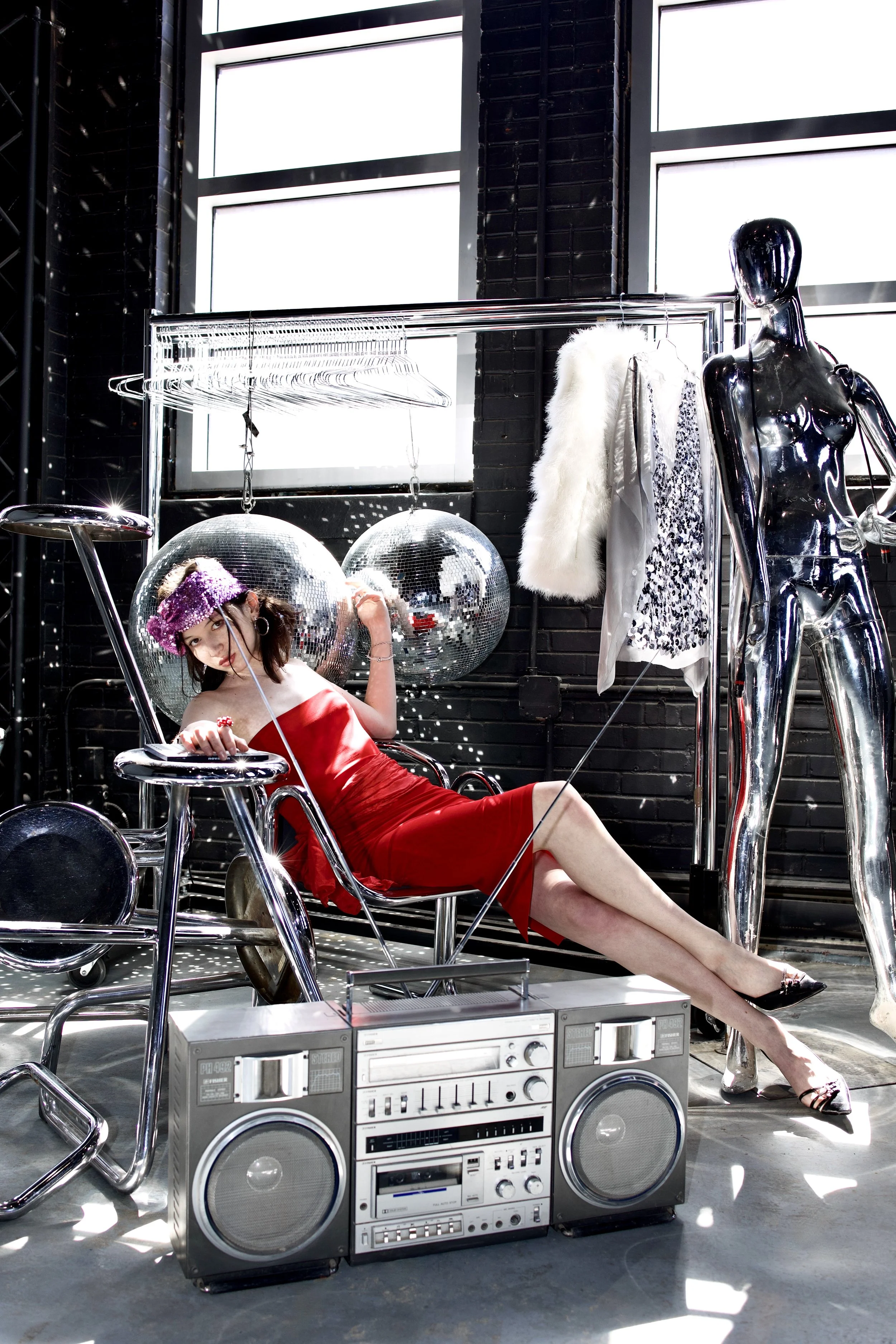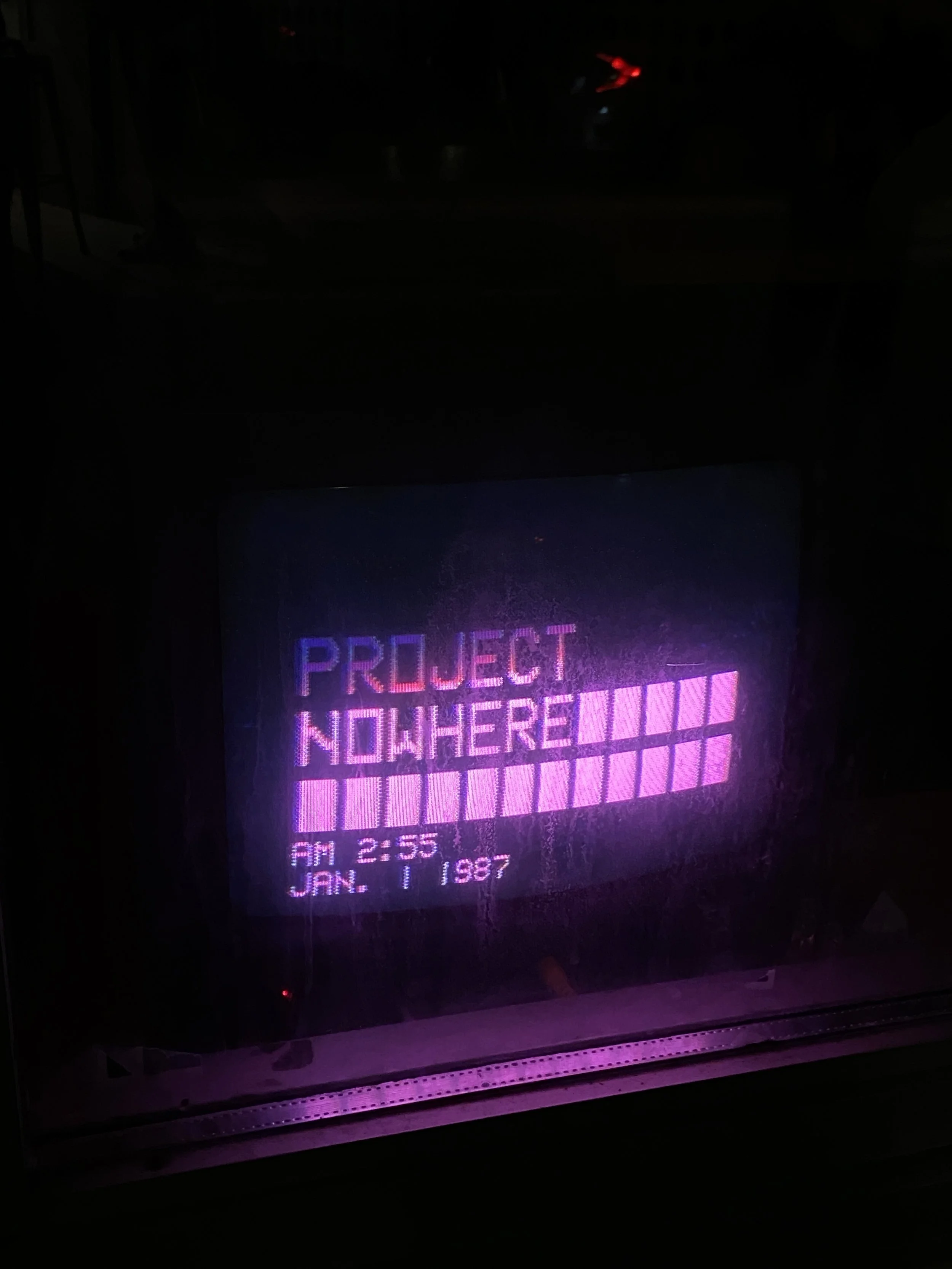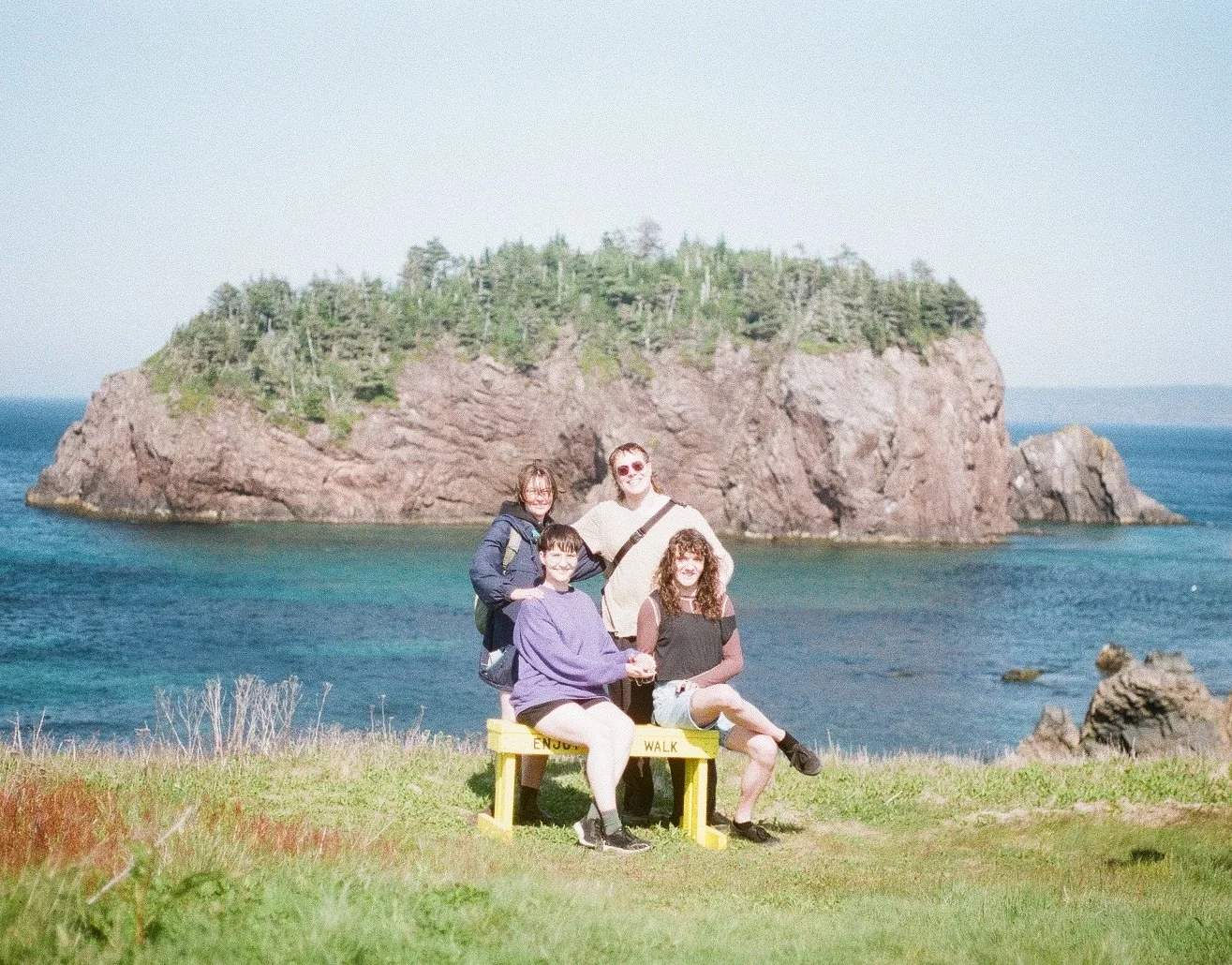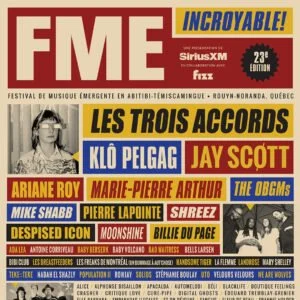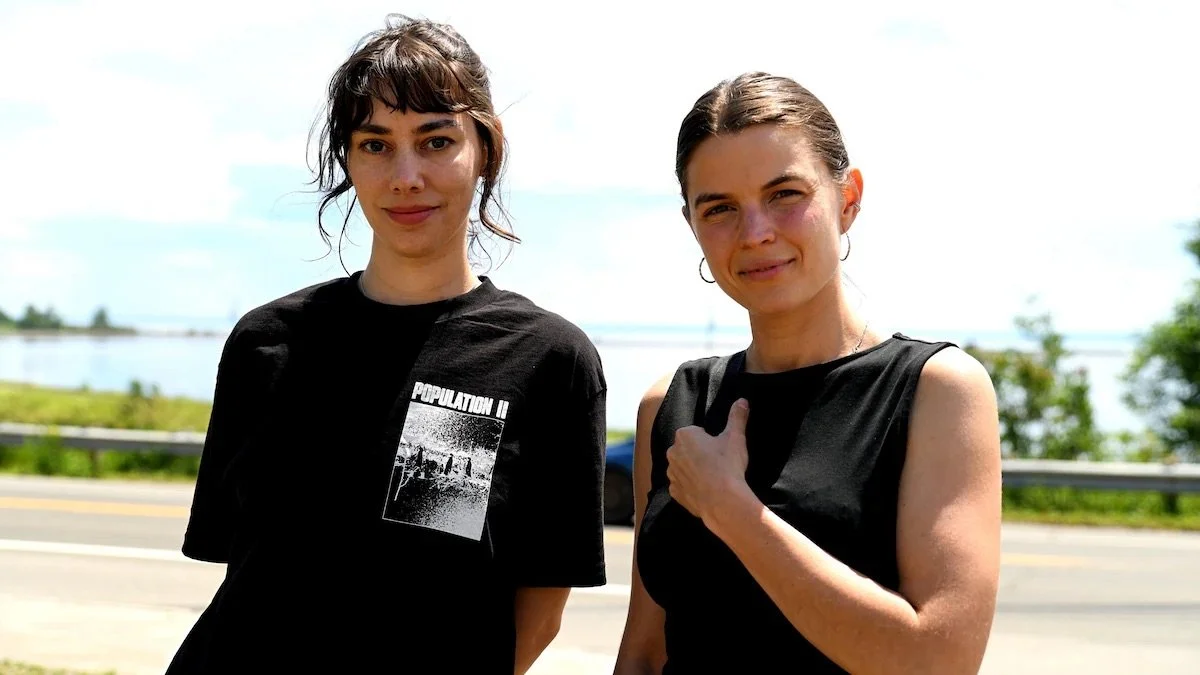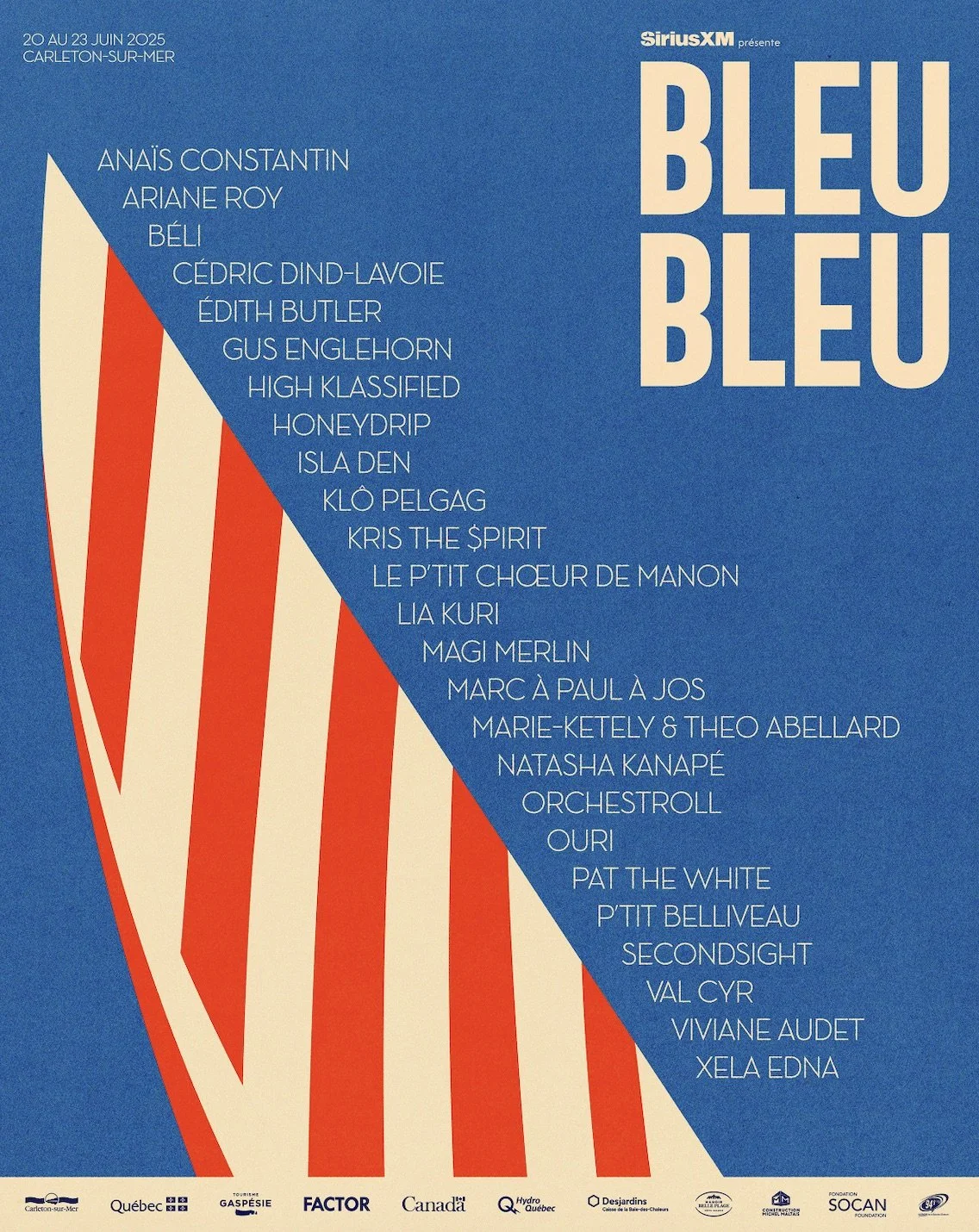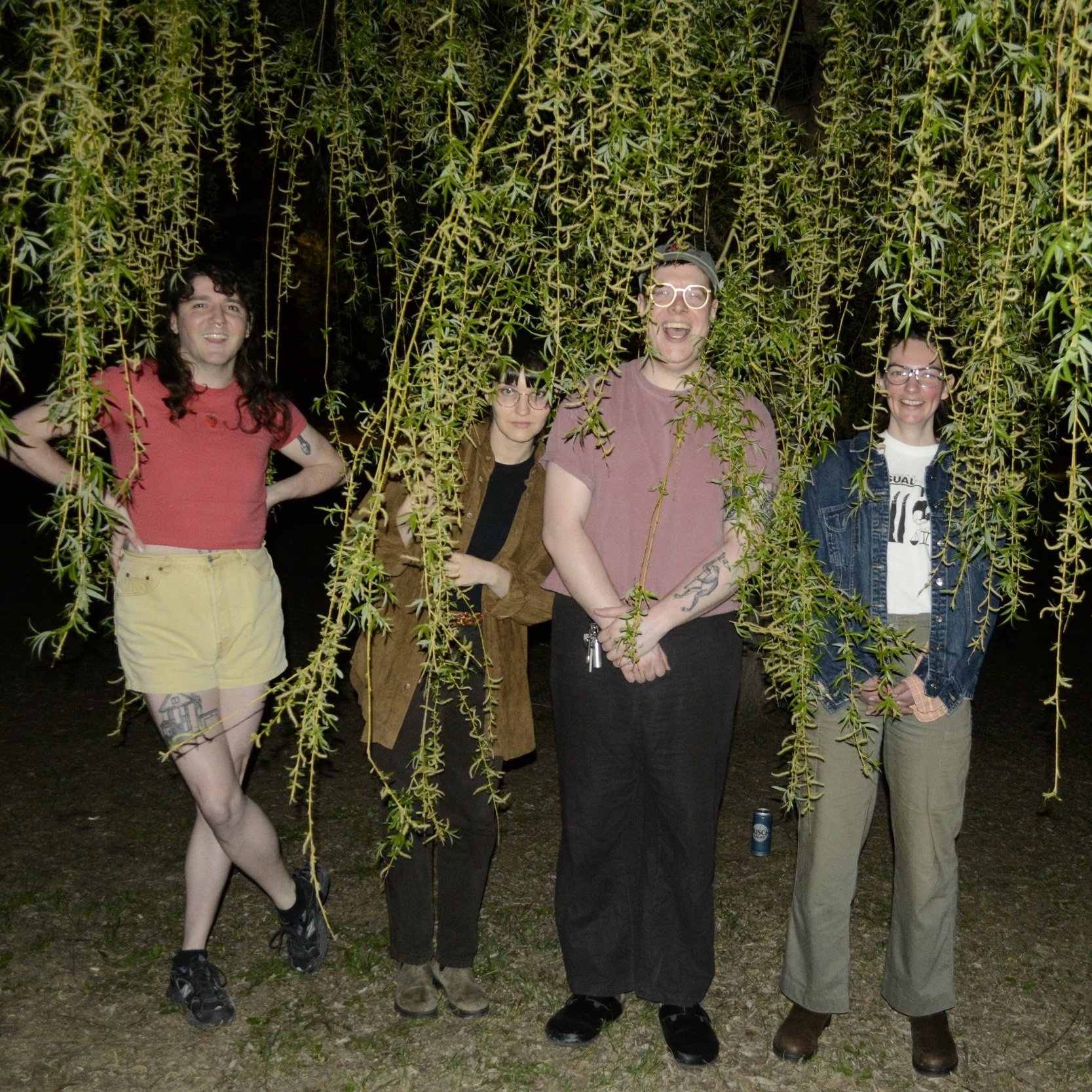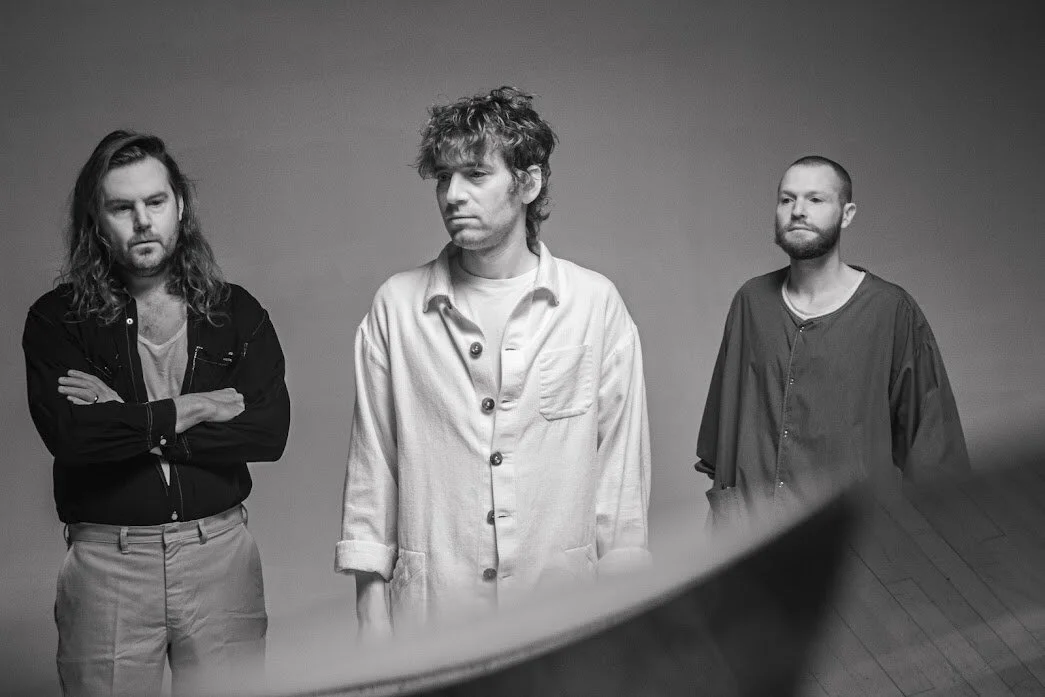Convulse, Groove and Exercise Your Demons with Gus Englehorn’s "Dungeon Master" (Secret City Records)
Gus Englehorn. Photo courtesy of Ariane Moisan
What’s the secret to fashioning tunes that veer from traditional genres? Watch cult classics with your guitar in hand. Having reified reveries from the eclectic fusion of Britpop and film, Gus Englehorn’s Dungeon Master gives organized existence to Dadaism’s deliberate irrationality.
The album is the second to come from post-art rocker Englehorn and Estée Preda—the project’s drummer and Englehorn’s life partner. Its first single, "The Gate", was released late last year, within which a first-person narration of Hitchcock’s Rebecca is brought to life. The tune’s mélange of gasps inaugurates an eye into the surrealist content that exists throughout the remainder of the album.
Disguised in what could be a nursery rhyme, the duo’s latest single “Run Rabbit Run” brims with playful alliterations and arcane matters. After a cacophonous fury of first-person narratives, the track slows down, allowing Englehorn’s vibrato to take center stage. The track’s accompanying video parades an endearing compilation of the twosome’s home videos—have a watch and take a ride with them down to Texas!
Expect bright strumming patterns resemblant of Blur’s Britpop years, vocal theatricality, and manic, oblique lyrics in the album’s surplus of nine tracks. Disguised in the most avant-garde of metaphors, a constellation of themes are canvassed in Dungeon Master: the lunacy of songwriting, a fictitious night spent on the Sunset Strip, and parasitism.
For fans of Oasis, Daniel Johnston, Beck, David Lynch, and a counter to traditional artistic values, Englehorn’s sophomore Dungeon Master is for your ears. Gyrate, shuffle your feet and get lost in an idiosyncratic farrago of eccentricities as freakish as a demon themself.
CJ Sommerfeld for Also Cool Mag: First off, thanks for your time today with Also Cool and congrats on the new album! I'm interested in this transition from a professional snowboarding career to that of music – had you been making music or songwriting during your snowboarding years? What forces were responsible for this change in careers?
Gus Englehorn: Thanks for having me! I had been writing songs for years and years, pretty much the whole time I was snowboarding. I really thought it out when I was very young. I imagined a day when I would be too old to snowboard professionally, and I thought to myself that that would be a very sad day. But I also thought that if I could learn how to write songs, I could do that thereafter until the day I died. So I took songwriting very seriously the whole time I was snowboarding, and I spent all my free time trying to master the craft.
Also Cool: A few of the tracks on Dungeon Master, notably “The Gate” and “Exercise your Demons”, were inspired by different cult classics. Is film the main space where you draw songwriting inspiration from?
Gus Englehorn: Film certainly is a huge inspiration to me. I often sit with a guitar and watch movies; I’ll pause to play some guitar, and watch a little more, and then pause, and then play a little more. I guess it’s the storytelling that intrigues me, and the way that great movies can suck you into their universe and give you a new perspective to write from.
AC: The strumming patterns, instrumental motifs and simple vocals heard throughout Dungeon Master reminisce those revered in the alt-rock subgenre, Britpop. Which artists and albums did you draw artistic merit from when putting together Dungeon Master?
GE: I love Britpop, and people don’t usually see that influence in the songs. But I love Blur AND Oasis! Especially Oasis. Some other big influences for the album were Roy Orbison, The Germs, The Pixies, Daniel Johnston, Beck, The Meat Puppets, Nirvana, Ennio Morricone, The Butthole Surfers and the song structures on Sgt Pepper’s.
AC: “Ups and Downs” puts forth a narration of the human condition. Can you tell us more about how this one came about, specifically what ‘evidence’ signifies in the verse: “Evidence is on the ground / evidence is all around / evidence is on the dot / evidence--it’s all we got”?
GE: I wanted the music to recreate the experience of writing songs: the burnouts along with the productive periods of mania right before you burn out, and the intoxicating triumphs and soul-crushing defeats. You’ll think a song is done and then the next day you will throw it away and start all over again. It’s an emotional rollercoaster, to say the least. The evidence is just all the little objects that go along with songwriting that are usually strewn about the place when I find myself writing – picks, empty tea cups, crumpled-up T-shirts, journals, books, cables. These exist as the evidence that you’ve been working, but if you aren't getting anything done, then that's all there is…jJust the evidence. That’s one thing that is the hardest about writing songs, is that you aren’t guaranteed to get anywhere even if you work everyday for a year straight. But when something comes together, there’s nothing quite like it!
AC: I would love to hear more about “Sunset Strip”. Is this tune a portrayal of a tripping and falling event you experienced, or is this West Hollywood mention a metaphor?
GE: To be perfectly honest, most of the songs are just plucked out of my imagination and don’t have a whole lot to do with myself – or anything else from reality, for that matter. This is one of those songs that I just dreamed up out of nowhere, seemingly. It tells the story of somebody's terrible night spent on the Sunset Strip: being kicked out of parties, bloody noses, falling downstairs, social anxiety, and almost being hit by a bus. I had never even been to the Sunset Strip when I wrote it.
AC: A reverbed and roomy guitar breaks into heavy percussions in the track that wraps up Dungeon Master – “The Flea”. The tune’s dramatic qualities provide a fitting outro to the album. I can’t help but interpret this one as a quarantine track, which makes me wonder if it is directed towards society; most notably in the line “I’ve been your flea for years”. Who is the ‘you’ in this tune’s direct address?
GE: While it was written during quarantine like the rest of the album, “The Flea” tells the tale of a parasitic romantic relationship. I wrote it about all the years Estée (my wife who plays drums in the band) supported me while I was transitioning from snowboarding into learning how to write songs, so I’m the flea. Stylistically, we were inspired by Roy Orbison’s “Pretty Woman” and “In Heaven” from Eraserhead by Peter Ivers and David Lynch. There is something that keeps me mashing up early rock and roll riffs with subversive little stories time and time again! Lots of fun to be had doing that, for some reason.
AC: Thanks for your words and time, Gus! Aside from your upcoming album drop, do you have any other creative endeavours coming our way?
GE: I remain entirely obsessed with songwriting for the moment, and I’m hoping I can finish a third album before too long.
Dungeon Master
Releases April 29th, 2022 via Secret City Records
1. The Gate
2. Ups and Downs
3. Exercise Your Demons
4. Sunset Strip
5. Oh Well Unwell
6. Tarantula
7. Lips
8. Run Rabbit Run
9. Terrible Horse
10. The Flea
Produced by Gus Englehorn and Estée Preda
All songs written and composed by Gus Englehorn
Recorded and mixed by Alex Ouzilleau
Mastering by Marc Thériault at Le Lab Mastering
All tracks recorded at Le Magnétophone in Québec City, QC in 2020
Published by Secret City Publishing
Gus Englehorn
Instagram | Bandcamp | Spotify
YouTube | Apple Music | Twitter | TikTok | Facebook | Website
CJ Sommerfeld (she/her) is a Vancouver-based freelance writer with a particular interest in the convergence of language, art and society. When she is not writing, you can find her experimenting with harmonic minor progressions on her keyboard.




